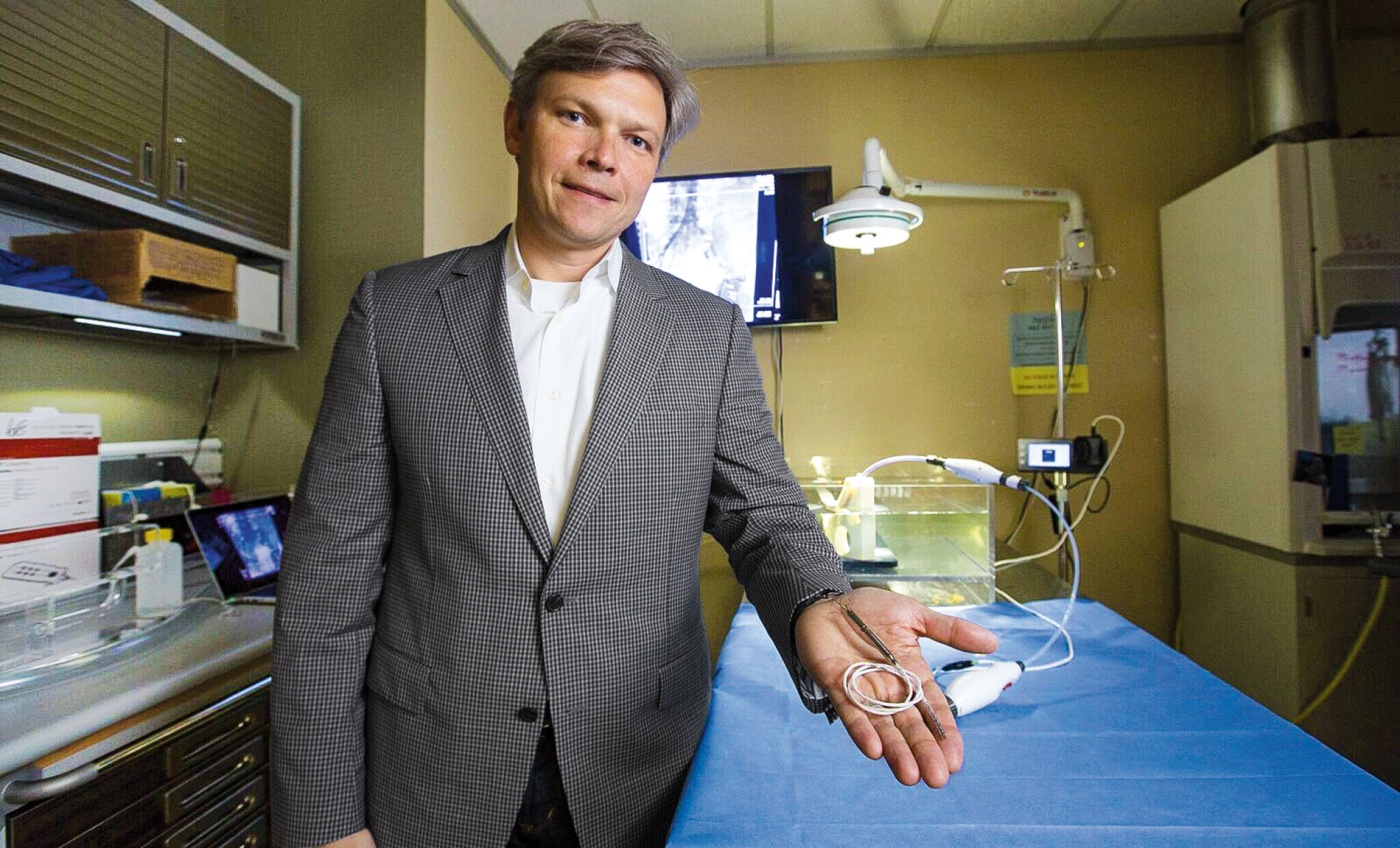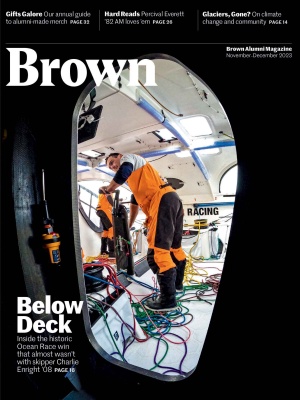Ben Hertzog ’99 PhD is out to solve two age-old problems in medicine: How to know how bones respond to surgery and how to speed up the healing process. Hertzog is CEO of Intelligent Implants, the developer of an orthopedic implant that not only gathers signals from the body but delivers treatment. Hertzog explains, “There’s a lot of work going on in adding sensors to implants to stream data from the body to get insights into what’s going on, but Intelligent Implants is unique in also offering a solution that includes a therapeutic to accelerate bone healing.”
The start-up, based in Gotebörg, Sweden, and Houston, Texas, addresses the problem of failed spine surgeries. “Back surgery is done almost a million and a half times a year,” says Hertzog, “but it has a twenty- to fifty-percent failure rate, depending on the patient [in terms of age and health].”
Intelligent Implants has developed a cloud-based, wireless implant system first intended for lumbar fusion to monitor and help heal fused vertebrae. An embedded electrode array measures bone growth and delivers electrostimulation to speed up healing. “We think we can make a big difference there, because we can grow three times the amount of bone as a non-stimulated surgery.”
While the start-up’s primary mission is to reduce the number of back surgery failures, even healthy people with successful surgical outcomes would benefit since it takes about six months for a lumbar fusion to heal: “If we can cut the recovery time in half and get people to resume normal activities sooner, that is a big value-add.”
The company is just beginning first-in-human studies, so it will be some time before patients enjoy the benefits of the new implant, but its path through the FDA has been smoothed by its Breakthrough Device designation. CEO Hertzog is out fundraising to get the company through its clinical trials.
This is the second medtech start-up Hertzog has shepherded towards the market. His first, Procyrion, developed a minimally invasive heart pump for heart failure. Starting with prototypes he built in his garage, Hertzog saw Procyrion through product development, fundraising, and clinical and regulatory processes. He says he always knew he didn’t want to go into pure research. “I wanted to build and make and do and solve important problems.”
That’s why he gravitated to the Artificial Organs, Biomaterials & Cellular Technology (ABC) program within the division of biology and medicine at Brown, he says. “It was interdisciplinary and more aligned with the medical school than the engineering department. We had our own machine shop. We could make prototypes and test them.” Hertzog says he benefited from having entrepreneurial faculty focused on solving real clinical problems with commercially viable solutions and gives credit to his thesis advisor, Professor Edith Mathiowitz; Bob Valentini, another professor of medical science and engineering; and the other faculty members in the ABC program who have a long history of working with industry and starting their own companies.





